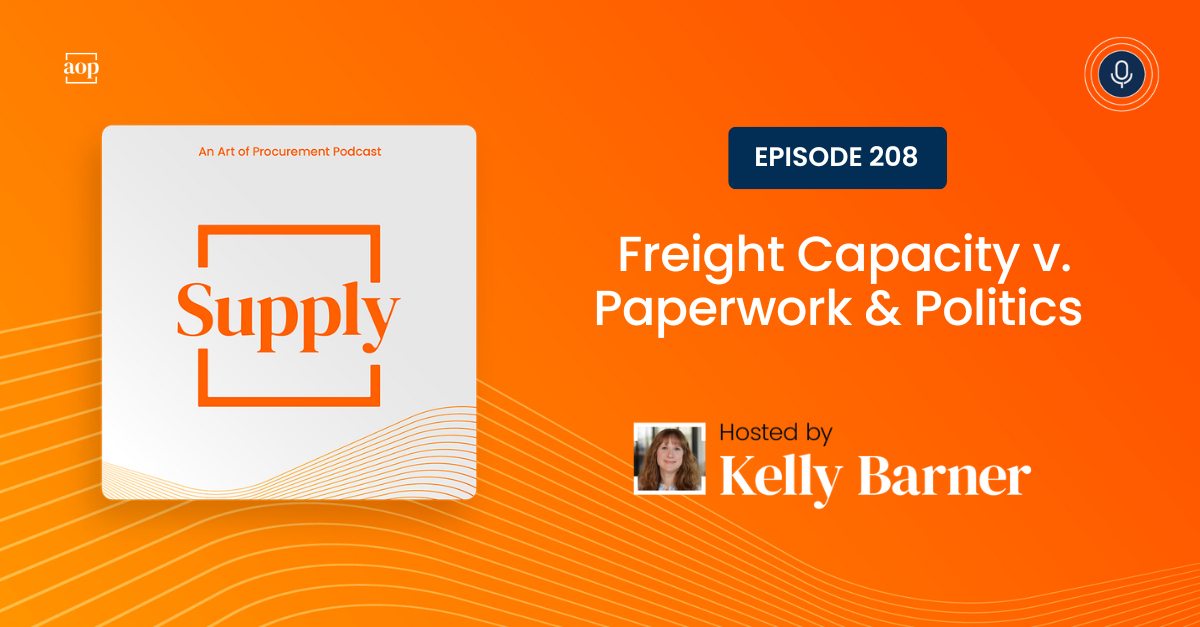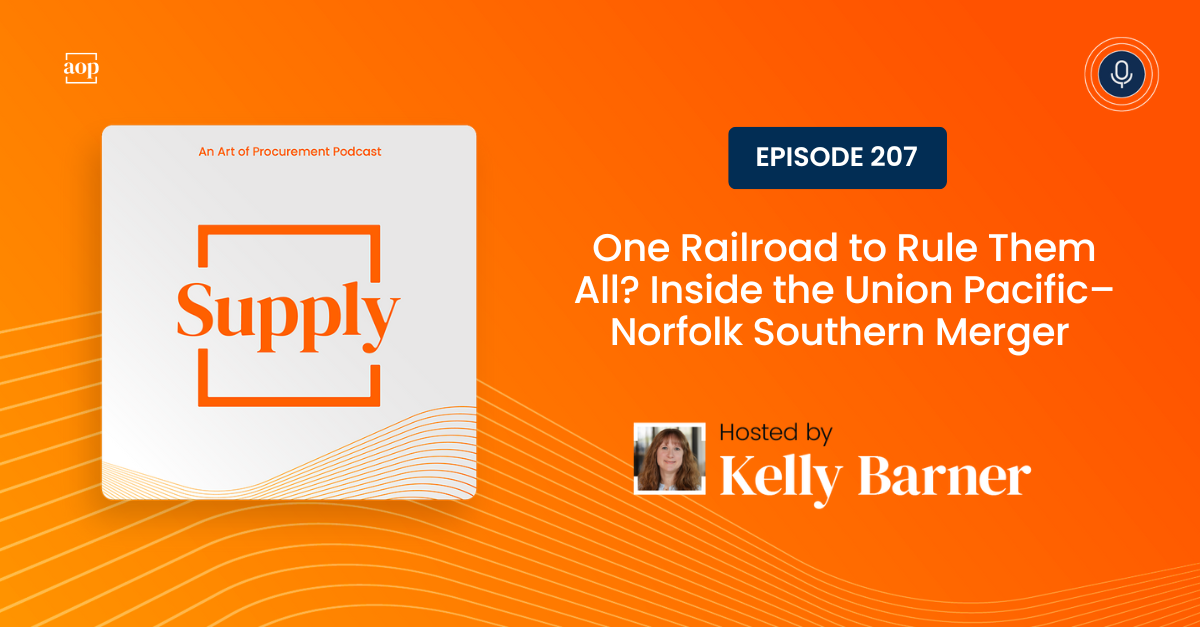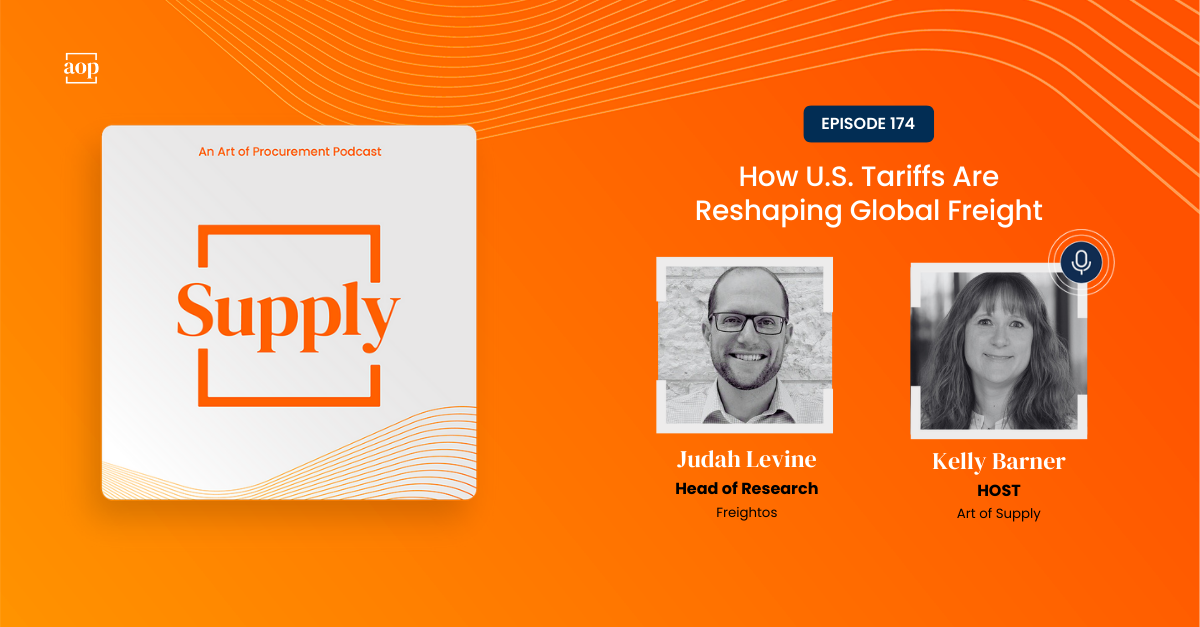.png)
If you look at the freight industry from 30,000 feet, everything seems to work smoothly. Shippers find capacity–whether small parcel, less-than truckload (LTL), or full truckload. Merchandise reaches its intended destination, and funds change hands. Simple, right? Hardly.
In practice, the process of finding capacity and demand, digitizing transactions, and managing payments is often a multi-party effort, where lines of ownership and responsibility have to be carefully delineated in order to keep the system working as designed.
The ‘freight agent’ model, as described above, is as common as it may be complicated. When it works well, everyone wins, but when the parties involved fail to meet everyone else’s expectations, the fallout can be significant, both personally and professionally.
In this week’s Art of Supply interview, I speak with Dylan Admire, CEO and Owner of Freight Essentials, an agent currently bringing RICO charges against their former brokers, Worldwide Express and GlobalTranz. He has been unprecedentedly open about the case, his reasons for bringing it, and the shortcomings of the freight agent model itself.
The Players
Freight agents focus on the shipper side of the logistics process. They have customers who want to move merchandise and materials and don’t operate their own fleet or a contract with a 3PL. Those customers and the money they are willing to spend on freight (small parcel, LTL, and/or full truckload) represent their ‘book of business,’ a key source of value they bring to the partnership they have with a broker.
Brokers maintain contracts with the carriers, hold the MC number, and facilitate the agent’s accounts receivable.
In this case, it is informative to consider the difference in annual revenue between the agent and broker. While Freight Essentials is a successful agent with approximately $40 Million in annual revenue, Worldwide Express and GlobalTranz (now part of the same organization) have an estimated $5 Billion.
Procurement routinely finds themselves on both sides of this divide. In some cases, for instance with enterprise software companies, it is extremely hard to be anything but a small fish in a large pond. In other cases, procurement is representing an enterprise trying to partner with small and medium-sized businesses for the speed, agility, and innovation they offer.
Regardless of which side procurement finds themselves on in the moment, it is impossible to deny that the disparity in size–and access to resources–determines where the leverage and advantage often reside. That disparity seems to be playing a role here, not just in the relationship between Freight Essentials and Worldwide Express and GlobalTranz, but in the freight agent model as a whole.
Follow the Money
While the broker facilitates the payments, they split the revenue with the agent who owns the shipper relationship. Freight Essentials had a 70/30 split with their brokers before the relationship was terminated, meaning they kept 70 percent to Worldwide Express and Global Tranz’s 30 percent.
My reading about the agent model suggested that the agent’s cut of revenue can range from 50-70 percent. The fact that Freight Essentials was at the top end of that range is likely for two reasons:
- They were one of the largest agents in the Worldwide Express/GlobalTranz network, and
- They are an “outside” agent, meaning that they take on more risk and responsibility than an “inside” agent, which operates in a more integrated fashion with the broker.
A key element of the case is whether Worldwide Express and GlobalTranz reached out and allegedly made offers to Freight Essentials’s largest clients once the broker-agent relationship deteriorated. Only a lengthy and costly court process will be able to determine who “owned” those customer relationships and the revenue associated with them.
Where are we… and what’s next?
Freight Essentials filed a RICO lawsuit against Worldwide Express and GlobalTranz on December 12th, 2024. As stated in a recent press release about the case, “According to the lawsuit, Freight Essentials uncovered hidden charges and other irregularities, prompting the defendants to allegedly retaliate by withholding earned payments, terminating Freight Essentials' contract without notice, defaming the company and its founders, and poaching customers.”
The fight has moved from being about ownership of customers and revenue to being focused on transparency. The defendants are moving to seal court documents related to the case, a step that Freight Essentials is fighting in a Texas District Court to prevent. A hearing scheduled for February 7, 2025 will allow both sides to make their case and will determine how much information is available to the public moving forward.




